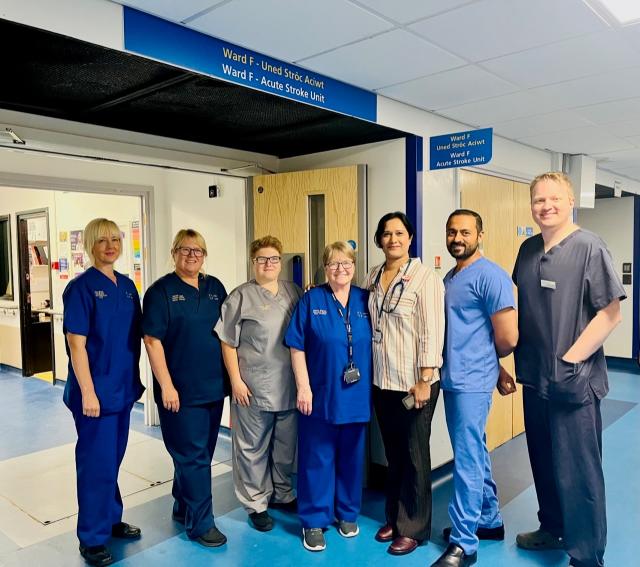
Swansea research team plays major role in ground-breaking international stroke study
29 June
A research team at Morriston Hospital in Swansea, led by Health and Care Research Wales’ deputy specialty lead for stroke, has helped inform a significant international study into when to administer vital blood-thinning medication to stroke patients.
The ELAN study concluded that giving patients anticoagulants soon after a stroke due to atrial fibrillation is both safe and effective, regardless of whether the stroke was mild, moderate or severe.
This will inform guidance for stroke patients, helping reduce the risk of further strokes and ultimately save lives.
Dr Manju Krishnan, Consultant Stroke Physician at Swansea Bay University Health Board, led the team at Morriston Hospital. This, and another Welsh centre, Ysbyty Glan Clwyd in Rhyl, were in the top five out of 103 recruiting centres across Europe, the Middle East and Asia.
Patients with atrial fibrillation (an irregular heartbeat) are at a five times greater risk of having a stroke. They also have a higher risk of having another stroke shortly after. Patients are typically given anticoagulation medication to reduce this risk, but guidance has varied on the best time to give them.
The ELAN study randomly assigned patients into two groups: one given anticoagulants at an earlier point following a stroke and one given them at a later stage.
Dr Krishnan said, “We are thankful to all participants of ELAN trial and hope that they will be pleased with the impact their participation has made in the history of stroke medicine. We were also proud that two of the Welsh centres were in the top five recruiting organisations internationally for this trial and that Swansea recruited the 500th participant.
“Many patients we spoke to were very happy to be given the opportunity to take part in research, which could improve outcomes for other patients in the future.”
Dr Krishnan hopes the study will boost Wales’ international reputation for health research.
Seeing Wales take such a prominent role in a big international study is hopefully a green light for being involved in others. I would love to see such trials initiated from Wales in the future.”